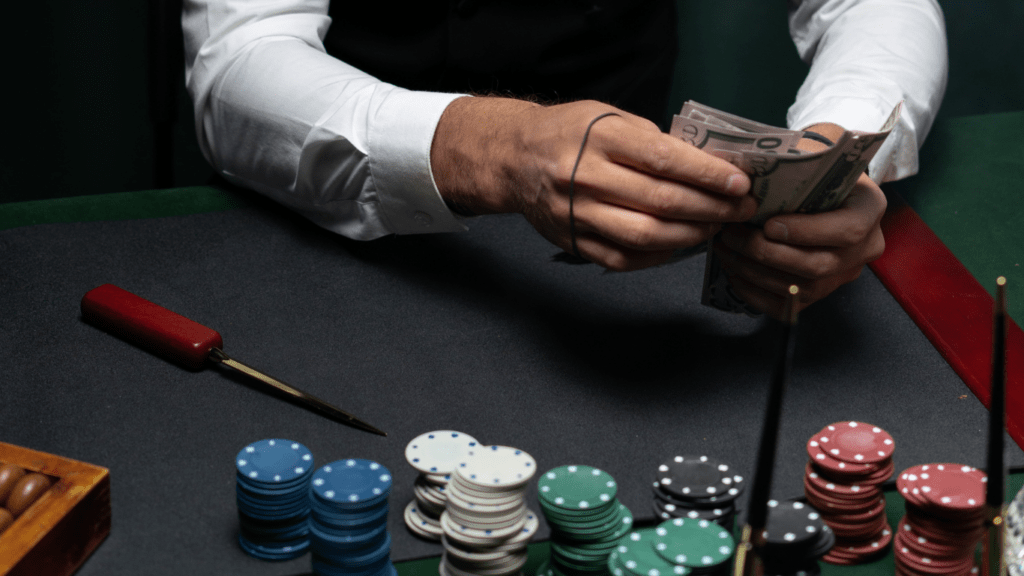Understanding the High Roller Table
High roller tables, known for their intense betting limits and elite atmosphere, demand more than just financial capacity. Engaging here involves not only playing with higher stakes but also navigating complex social dynamics and psychological battles. The essence of these tables is defined by the players themselves—individuals who possess a blend of sharp intuition, calculated risk-taking, and profound patience.
Professional players frequently occupy these tables, each bringing unique strategies honed over years. This makes understanding their behaviors crucial. Observing how they manage their chips, react to bets, and adjust strategies provides insights into their decision-making processes. It’s not just about the cards—it’s about interpreting subtleties and predicting moves with precision.
Preparation extends beyond traditional skills. Familiarity with the specific rules of high-stakes variants is essential. These games often vary in structure, significantly impacting decisions and gameplay. Some examples include pot-limit Omaha and no-limit Texas Hold’em. Comprehending these differences minimizes mistakes and enhances strategic advantage.
The psychological intensity is unparalleled. Players face constant pressure, testing their mental fortitude. Emotional stability becomes a significant factor as swings can rapidly change fortunes. Remaining calm during high-pressure situations distinguishes seasoned professionals from amateurs. Reading the emotional state of opponents often reveals their hand strength or bluff strategies.
The high roller table represents not only a financial commitment but an intellectual and emotional one. Mastery here influences long-term success and reputation in high-stakes environments. This section serves as your guide to comprehending the nuances involved, paving the way for your eventual success at these elite tables.
Essential Poker Skills
Mastering crucial poker skills sharpens a player’s edge at high roller tables. Developing these skills involves a deep understanding of game mechanics and player psychology.
Mastering Game Theory
Understanding game theory enhances strategic thinking. I analyze poker scenarios using concepts like Nash Equilibrium, which helps in recognizing optimal strategies. By simulating hands and evaluating possible outcomes, players gain insight into opponents’ potential moves. Studying complex betting structures and payoff matrices contributes to making mathematically informed decisions.
Advanced Bluffing Techniques
Executing advanced bluffing requires precision. I consider:
- timing
- position
- table dynamics
to create convincing bluffs. Observing opponents’ betting patterns provides clues about their hand strength, informing my decisions on when to bluff. Integrating semi-bluffs, where a potential drawing hand adds value, increases the effectiveness of my strategy.
Reading Opponents
Accurately reading opponents is a key poker skill. I pay attention to subtle behavioral cues and betting tendencies to deduce hand strength. Noticing inconsistencies or changes in behavior can reveal valuable information about opponents’ intentions. Categorizing player types, such as loose-aggressive or tight-passive, allows me to adjust my playstyle and counteract their strategies efficiently.
Strategy Development
Developing an effective strategy is vital for any high roller aiming for success. With disciplined planning and decision-making, you increase your chances against competitive opponents.
Building a Strong Bankroll

A robust bankroll forms the foundation of effective strategy development. I suggest calculating your risk tolerance before setting financial parameters for your play. Consistent budgeting ensures stability and prevents emotional decisions driven by losses. Monitoring spending patterns helps track growth and avoid deviation from strategic plans.
Selecting the Right Games
Choosing the right games influences your strategic outcomes significantly. Assess games by their player profiles and risk levels to align with your strengths. Prioritize games where you possess an edge, such as familiarity with specific rules or common player tendencies. I recommend avoiding games solely motivated by high payouts if the competition surpasses your skill level.
Mental and Physical Preparation
Achieving peak performance at the high roller table requires both mental acuity and physical vitality. Sharpening these aspects boosts resilience and adaptability in high-stakes situations.
Managing Stress and Pressure
- Handling pressure is critical for success at high roller tables.
- I find that training my mind through mindfulness practices such as meditation or focused breathing helps me remain calm.
- These techniques improve emotional regulation, allowing me to think clearly and make logical decisions.
- Moreover, establishing a routine that includes physical exercise strengthens my resilience by enhancing my overall well-being.
- Staying physically active fosters mental endurance, essential for sustaining composure during intense games.
Maintaining Focus and Discipline
At high roller tables, unwavering focus is indispensable. I prioritize creating an environment that minimizes distractions to sustain concentration.
Techniques like setting specific goals for each session aid in maintaining discipline, enabling me to avoid emotional decision-making. I also use mental exercises like visualization to reinforce strategic planning and pre-empt impulsive actions. Consistency in these practices cultivates a disciplined mindset, crucial for countering the allure of high-risk bets and maintaining a strategic edge.
Leveraging Technology and Tools
Embracing technology enhances a player’s edge at high roller tables. By considering various tech-based resources, players can refine their skills and make informed decisions.
Utilizing Software for Analysis
Software tools offer significant advantages in analyzing gameplay. I use programs like poker solvers and database managers to evaluate hand histories and identify optimal strategies. Such software simulates numerous scenarios, allowing me to understand game theory concepts more deeply, such as expected value and equity distribution. By regularly reviewing my gameplay, I minimize errors and improve strategic decision-making, especially in complex hands.
Tracking Progress and Outcomes
Continuous improvement requires meticulous tracking of play sessions. I maintain detailed records through tracking applications, documenting wins, losses, and key hands to monitor my performance accurately. These tools also generate insights into betting patterns and profitability trends. Reviewing this data helps me adjust my strategies and focus on areas that require attention, ensuring consistent growth and adaptation at high roller tables.

 Christopher Walkerashed, the founder of Wild Gamble Greed, is a trailblazer in the high-stakes gambling industry. With a passion for the excitement of big bets, he created a platform that caters to seasoned players, offering expert insights into high-stakes sports betting, poker, and slot machines with massive payouts. Walkerashed is equally committed to promoting responsible gambling, ensuring players have the tools to balance ambition with control. Through his innovative vision, Wild Gamble Greed has become a premier destination for high-rollers seeking to gamble smartly and responsibly.
Christopher Walkerashed, the founder of Wild Gamble Greed, is a trailblazer in the high-stakes gambling industry. With a passion for the excitement of big bets, he created a platform that caters to seasoned players, offering expert insights into high-stakes sports betting, poker, and slot machines with massive payouts. Walkerashed is equally committed to promoting responsible gambling, ensuring players have the tools to balance ambition with control. Through his innovative vision, Wild Gamble Greed has become a premier destination for high-rollers seeking to gamble smartly and responsibly.